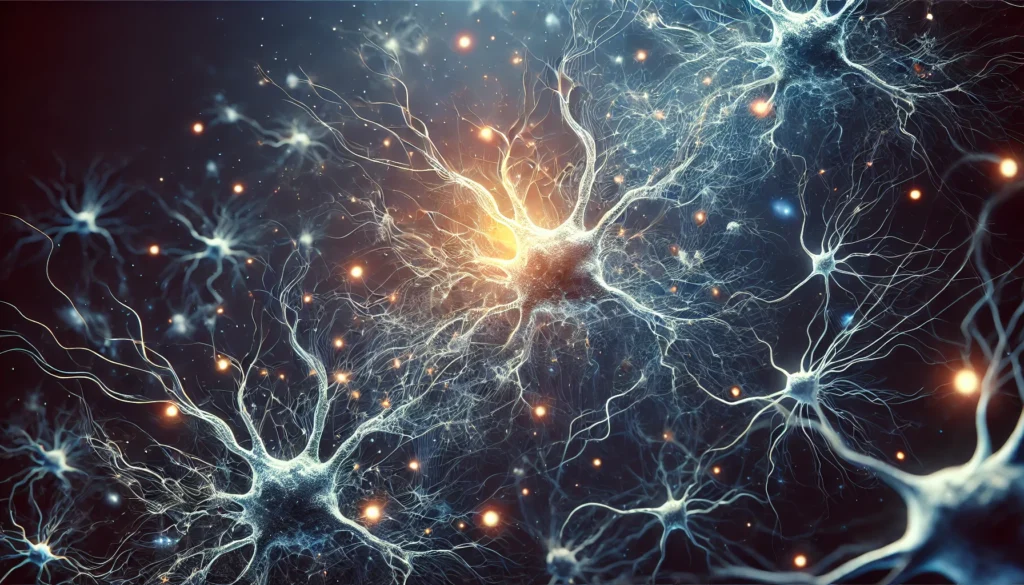Early onset dementia, also referred to as young onset dementia, is characterized by the onset of dementia symptoms before the age of 65. While dementia is commonly associated with older adults, early onset dementia accounts for up to 5-10% of all dementia cases, affecting individuals in their 30s, 40s, and 50s. The condition is particularly challenging because it often strikes during a person’s most productive years, impacting their work, family life, and social relationships.
You may also like: Understanding the Science Behind Lost Memory
Defining Early Onset Dementia
Understanding what constitutes early onset dementia requires a closer look at its clinical definition. Unlike its late-onset counterpart, early onset dementia presents a unique set of challenges due to its timing. The symptoms manifest during a period typically associated with peak career and personal life activities, creating a distinct burden not only for those diagnosed but also for their families and communities.
The Prevalence and Demographics
While early onset dementia is relatively rare, its impact is profound. The condition affects a smaller demographic, yet the consequences ripple through families and workplaces. Studies estimate that around 200,000 people in the United States alone live with early onset Alzheimer’s disease, underscoring the need for greater awareness and resources tailored to this group.
The Socioeconomic Impact
The socioeconomic implications of early onset dementia are significant. Individuals diagnosed in their productive years face financial strain due to lost wages and increased healthcare costs. Moreover, families often encounter unexpected caregiving responsibilities, which can lead to emotional and financial stress. Understanding these dynamics is crucial for developing supportive policies and interventions.
How Young Can You Get Dementia?
One of the most frequently asked questions about early onset dementia is, “How young can you get dementia?” Though rare, cases have been documented in individuals as young as their 20s. Familial forms of Alzheimer’s disease, linked to genetic mutations, are often responsible for these early cases. Nevertheless, the typical age of onset for early onset dementia ranges from 45 to 65.
Documented Cases in the Young
While most cases of early onset dementia occur in individuals over 45, instances have been documented in much younger individuals. These rare cases often involve aggressive forms of the disease, which can rapidly progress. Such cases highlight the urgent need for early diagnosis and specialized care strategies.
Genetic Predispositions
In younger individuals, genetics often play a pivotal role in the onset of dementia. Mutations in specific genes can predispose individuals to the disease at an unusually young age. Families with a history of early onset dementia may carry genetic markers that increase risk, making genetic counseling an essential component of early detection strategies.
Typical Age Range and Variability
Although the typical age range for early onset dementia is 45 to 65, the age of onset can vary widely. Some individuals may experience symptoms much earlier, while others may not display signs until their late 50s. This variability complicates diagnosis and necessitates a personalized approach to treatment and care.
Causes of Early Onset Dementia
The causes of early onset dementia are multifaceted, involving a combination of genetic, environmental, and lifestyle factors. Understanding these causes is crucial for both diagnosis and the development of potential interventions.
Genetic Factors
Genetics play a significant role in early onset dementia, particularly in familial cases. Mutations in genes such as APP, PSEN1, and PSEN2 have been linked to familial Alzheimer’s disease, a form of early onset dementia. These mutations disrupt the production or clearance of amyloid-beta, a protein that forms plaques in the brain, leading to cognitive decline.
Key Genetic Mutations
The APP, PSEN1, and PSEN2 genes are central to understanding the genetic component of early onset dementia. Mutations in these genes interfere with normal brain processes, accelerating the formation of amyloid plaques. Identifying these mutations through genetic testing can provide crucial insights for at-risk individuals and their families.
Genetic Counseling and Testing
Genetic counseling offers valuable support for families with a history of early onset dementia. Through counseling, individuals can gain a better understanding of their risk and explore the benefits and limitations of genetic testing. This proactive approach empowers families to make informed decisions about their health and future planning.
Familial vs. Sporadic Cases
While many early onset dementia cases are familial, a significant number arise sporadically without a clear genetic link. Research into the genetic basis of both familial and sporadic cases continues to evolve, highlighting the complexity of the disease and the need for ongoing investigation.
Environmental and Lifestyle Factors
While genetics are a key player, environmental and lifestyle factors also contribute to the risk of developing early onset dementia. Factors such as head injuries, exposure to toxins, and chronic stress can increase susceptibility. Additionally, lifestyle choices like diet, physical activity, and cognitive engagement have been shown to influence brain health and may modulate the risk of dementia.
Impact of Physical Environment
Environmental factors such as exposure to pollutants and toxins can have long-term effects on brain health. Chronic exposure to harmful substances may increase the likelihood of developing dementia, emphasizing the importance of environmental health and safety measures in dementia prevention strategies.
Lifestyle Choices and Brain Health
Adopting a healthy lifestyle can significantly impact brain health. Regular physical activity, a balanced diet, and cognitive stimulation are known to support cognitive function and potentially reduce the risk of dementia. Public health campaigns promoting these lifestyle factors are vital in fostering a brain-healthy society.

Role of Stress and Mental Health
Chronic stress and mental health conditions are emerging as significant risk factors for dementia. Prolonged stress can lead to physiological changes that affect brain function, while untreated mental health issues may exacerbate cognitive decline. Addressing these factors through mental health support and stress management techniques is crucial for prevention.
Other Medical Conditions
Certain medical conditions, including cardiovascular disease, diabetes, and obesity, are associated with an increased risk of dementia. These conditions can lead to vascular changes in the brain, contributing to cognitive impairment. Moreover, autoimmune disorders and infections can also trigger inflammatory processes that impact brain function.
Cardiovascular Health and Dementia
The link between cardiovascular health and dementia is well-established. Conditions like hypertension and atherosclerosis can impair blood flow to the brain, leading to cognitive decline. Maintaining cardiovascular health through regular check-ups and lifestyle modifications is essential for reducing dementia risk.
Metabolic Disorders and Cognitive Decline
Metabolic disorders such as diabetes can significantly affect brain health. High blood sugar levels and insulin resistance have been linked to cognitive impairment, highlighting the need for effective management of these conditions to preserve cognitive function.
Inflammatory Processes and Brain Function
Autoimmune disorders and chronic infections can trigger inflammatory processes that damage brain cells. Understanding these mechanisms is critical for developing therapies that target inflammation and protect brain health. Ongoing research into the role of inflammation in dementia offers hope for new treatment avenues.
Symptoms of Early Onset Dementia
Recognizing the symptoms of early onset dementia is crucial for timely diagnosis and intervention. While symptoms can vary depending on the type and stage of dementia, common early signs include:
Cognitive Symptoms
- Memory Loss: Difficulty remembering recent events or information.
- Attention Deficits: Trouble focusing or maintaining attention.
- Problem-Solving Difficulties: Challenges in planning, organizing, or reasoning.
Memory Loss and Forgetfulness
Memory loss in early onset dementia often begins subtly, with individuals struggling to recall recent events or information. Over time, these lapses become more pronounced, affecting daily activities and interactions. Early recognition of memory issues is vital for seeking timely medical evaluation.
Attention and Concentration Challenges
Individuals with early onset dementia may find it increasingly difficult to concentrate on tasks or maintain attention. This symptom can interfere with work performance and daily life, underscoring the importance of early cognitive assessments to identify underlying issues.
Problem-Solving and Executive Function
Difficulties with problem-solving and executive function are common in early onset dementia. These challenges manifest as trouble planning, organizing, or reasoning through complex tasks, impacting personal and professional responsibilities. Early intervention can help manage these cognitive changes.
Behavioral and Emotional Symptoms
- Mood Changes: Increased irritability, depression, or anxiety.
- Personality Changes: Alterations in social behavior or loss of inhibition.
- Withdrawal: Decreased interest in hobbies or social activities.
Emotional Instability and Mood Swings
Mood changes, including irritability and depression, are often early indicators of dementia. These emotional shifts can strain relationships and exacerbate stress for individuals and their families, highlighting the need for supportive interventions to address mental health.
Shifts in Personality and Social Behavior
Personality changes can be particularly distressing for those with early onset dementia. Individuals may exhibit uncharacteristic behaviors or lose social inhibitions, leading to misunderstandings and social challenges. Understanding these changes is crucial for providing compassionate support.
Social Withdrawal and Isolation
As dementia progresses, individuals may withdraw from social activities and hobbies they once enjoyed. This withdrawal can lead to isolation and further cognitive decline, emphasizing the importance of maintaining social connections and engagement in meaningful activities.
Physical Symptoms
- Coordination Problems: Difficulty with balance or motor skills.
- Speech Difficulties: Struggles with finding the right words or forming coherent sentences.
Motor Skills and Coordination
Physical symptoms, such as difficulty with balance or motor skills, can emerge in early onset dementia. These challenges may affect daily activities and increase the risk of falls, necessitating interventions to maintain mobility and safety.

Communication and Language Barriers
Speech difficulties, including trouble finding words or forming coherent sentences, are common in early onset dementia. These communication barriers can be frustrating for individuals and their caregivers, highlighting the need for strategies to support effective communication.
The Intersection of Physical and Cognitive Symptoms
The interplay between physical and cognitive symptoms in early onset dementia requires a comprehensive approach to care. Addressing both physical and cognitive challenges can enhance quality of life and support independence for those affected.
Diagnosis of Early Onset Dementia
Diagnosing early onset dementia can be challenging due to its rarity and the overlap of symptoms with other conditions. A comprehensive assessment typically involves:
- Medical History and Physical Examination: Gathering information about symptoms, family history, and overall health.
- Cognitive and Neuropsychological Tests: Evaluating cognitive function through various tests.
- Brain Imaging: Using MRI or CT scans to detect structural changes in the brain.
- Genetic Testing: Identifying potential genetic mutations in familial cases.
Comprehensive Diagnostic Process
The diagnostic process for early onset dementia involves a thorough evaluation of medical history and symptoms. Physicians gather detailed information about cognitive changes, family history, and overall health to differentiate dementia from other conditions with similar symptoms.
Cognitive and Neuropsychological Evaluation
Cognitive and neuropsychological tests play a crucial role in diagnosing early onset dementia. These assessments measure various aspects of cognitive function, helping to identify patterns of impairment that suggest dementia. Early testing can facilitate timely intervention and care planning.
The Role of Brain Imaging
Brain imaging techniques, such as MRI and CT scans, are essential tools in diagnosing early onset dementia. These scans can reveal structural changes in the brain that support a diagnosis of dementia, aiding in the differentiation from other neurological disorders.
Genetic Testing and its Implications
Genetic testing is particularly relevant for familial cases of early onset dementia. Identifying specific genetic mutations can confirm a diagnosis and inform family planning decisions. However, the ethical implications of genetic testing require careful consideration and counseling.
Living with Early Onset Dementia
Living with early onset dementia requires a multifaceted approach that addresses the unique challenges faced by younger individuals. Key components of care include:
Support and Education
Providing education and support to patients, families, and caregivers is essential. Support groups and counseling can offer emotional support and practical advice for managing daily challenges.
The Importance of Support Networks
Support networks, including family, friends, and community resources, are vital for individuals with early onset dementia. These networks provide emotional and practical support, helping individuals navigate the challenges of daily life and maintain a sense of connection and belonging.
Educational Resources for Families
Access to educational resources empowers families to better understand dementia and its progression. Knowledgeable caregivers are better equipped to provide compassionate care and make informed decisions about treatment and support options.
Counseling and Emotional Support
Counseling services offer crucial emotional support for individuals with dementia and their families. Professional counseling can help manage the emotional impact of the diagnosis, fostering resilience and coping strategies for those affected.
Lifestyle Modifications
Adopting a brain-healthy lifestyle can help mitigate symptoms and promote overall well-being. This includes a balanced diet, regular physical activity, cognitive exercises, and stress management techniques.
Nutrition and Brain Health
A balanced diet rich in nutrients supports brain health and may alleviate some symptoms of dementia. Emphasizing foods with anti-inflammatory and antioxidant properties can enhance cognitive function and overall well-being.
Physical Activity and Cognitive Function
Regular physical activity has been shown to improve cognitive function and delay the progression of dementia. Exercise programs tailored to individual abilities can enhance physical health, mood, and cognitive resilience.
Cognitive Stimulation and Engagement
Engaging in cognitive exercises and stimulating activities can help maintain brain function and delay cognitive decline. Activities such as puzzles, reading, and social interactions promote mental agility and enrich quality of life.
Medical Interventions
While there is currently no cure for dementia, certain medications can help manage symptoms and improve quality of life. Additionally, ongoing research into novel therapies and interventions holds promise for future treatments.
Current Pharmacological Options
Medications currently available for dementia focus on managing symptoms and improving quality of life. These treatments can help stabilize cognitive function, although they do not halt disease progression. Regular consultations with healthcare providers ensure optimal medication management.
Emerging Therapies and Research
Research into new therapies for dementia is ongoing, with promising developments on the horizon. Innovative treatments targeting the underlying causes of dementia offer hope for more effective interventions in the future.
The Role of Clinical Trials
Participation in clinical trials provides access to cutting-edge treatments and contributes to the advancement of dementia research. Individuals with early onset dementia and their families are encouraged to explore clinical trial opportunities as part of their care strategy.

Conclusion
Early onset dementia is a complex and multifaceted condition that requires a nuanced understanding and approach. By exploring its causes, symptoms, and potential interventions, we can better support those affected and pave the way for future advancements in care and treatment. As awareness and research continue to grow, we move closer to unraveling the mysteries of early onset dementia and improving the lives of those impacted by it. Through collective efforts in education, support, and research, we can foster a more inclusive and compassionate society for individuals with early onset dementia and their families.
Further Reading:
Young-onset Alzheimer’s: When symptoms begin before age 65
Early-Onset Alzheimer’s Disease
Important Note: The information contained in this article is for general informational purposes only, and should not be construed as health or medical advice, nor is it intended to diagnose, prevent, treat, or cure any disease or health condition. Before embarking on any diet, fitness regimen, or program of nutritional supplementation, it is advisable to consult your healthcare professional in order to determine its safety and probable efficacy in terms of your individual state of health.
Regarding Nutritional Supplements Or Other Non-Prescription Health Products: If any nutritional supplements or other non-prescription health products are mentioned in the foregoing article, any claims or statements made about them have not been evaluated by the U.S. Food and Drug Administration, and such nutritional supplements or other health products are not intended to diagnose, treat, cure, or prevent any disease.


